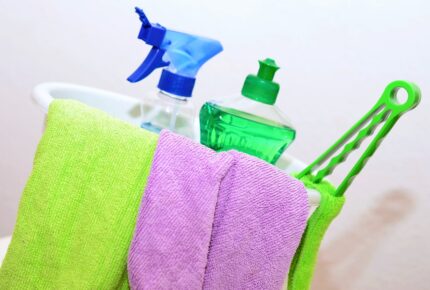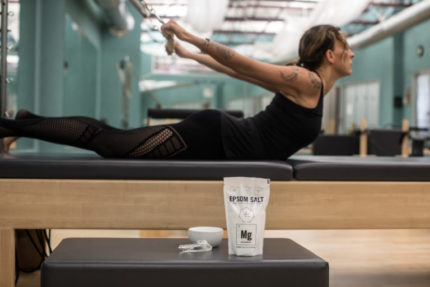Shamban says Epsom salt – magnesium sulfate – is a ‘hero ingredient’ in at-home spa recipes, because it’s a gentle exfoliant that relaxes muscles and gives people more magnesium
During the stressful pandemic, people should take just 15 minutes a day for self-care, says a renowned dermatologist who recommends using Epsom salt for at-home spas.
“Taking time for self-care is a necessity, not a luxury,” says Dr. Ava Shamban, a “Derm Diva” who co-hosts the show The Gist. “It should be a priority for balance, stress relief, keeping cortisol levels in check and ensuring we get proper sleep during times of high stress and our new normal.”
Shamban founded Ava MD dermatology and Skin Five medical spas. She’s often featured in the nation’s top media outlets – from The Wall Street Journal and Forbes to Martha Stewart and Good Housekeeping. She wrote the best-selling book Heal Your Skin: The Breakthrough Plan for Renewal, and she’s worked with the TV shows, “Extreme Makeover,” “Extra” and “The Doctors.”
Shamban also conducts clinical trials for the FDA, testing the latest products, protocols, treatments and technologies for top pharmaceutical companies.
Part of Shamban’s at-home spa recipes include soaking in Epsom salt, which is actually magnesium sulfate.
“Magnesium plays a vitally important role in over 300 enzymatic and metabolic processes in the human body, including the regulation of blood pressure and immune support, as well as moving toxins and relaxing muscles,” Shamban says.
“Unfortunately, many of us, specifically women, are deficient in magnesium. Transdermal delivery (through the skin) is a highly effective way to ensure the body gets an ample dose.”
Some of Shamban’s suggestions for self-care:
- Dim the lights and engage the senses. Light a candle for aromatherapy and set the tone with either a short, guided meditation or deep breathing.
- Use a brush with stiff bristles (a lymphatic dry brush) and brush your skin from your extremities toward your heart. That spurs circulation and oxygenation and gets fluids moving.
- Add a cup of Epsom salt to a bath and soak while wearing a face mask. Use the salt and a little water as a paste to exfoliate while the bath is filling.
You can also make a healing scrub, where Epsom salt is the “hero ingredient,” because it’s an exfoliant that soothes muscle aches. Here’s the recipe:
- Combine ¼ cup olive oil, five drops of pure essential lavender oil, three teaspoons of Epsom salt, and one teaspoon (roughly two tea bags’ worth) of green tea in a bowl or jar.
- Mix the ingredients to create a paste-like consistency, and don’t be afraid to add extra Epsom salt or olive oil. “Think of these DIYs as you would cookie batter—if the consistency is too runny, add more solid, and if it’s not runny enough, add more oil.”
- Avoid your face and massage across your damp skin.
“Epsom salt has powerful benefits, because it fights inflammation, irritation, and dehydration or rough patches for smoother, softer and overall better skin,” Shamban says. “Combine it with key essential oils and carrier oils, as well as calming ingredients. This scrub will exfoliate, hydrate, moisturize and seal the skin with properties that will also soothe.”
Note: For human use, the Epsom Salt Council recommends only Epsom salt with the USP designation.





